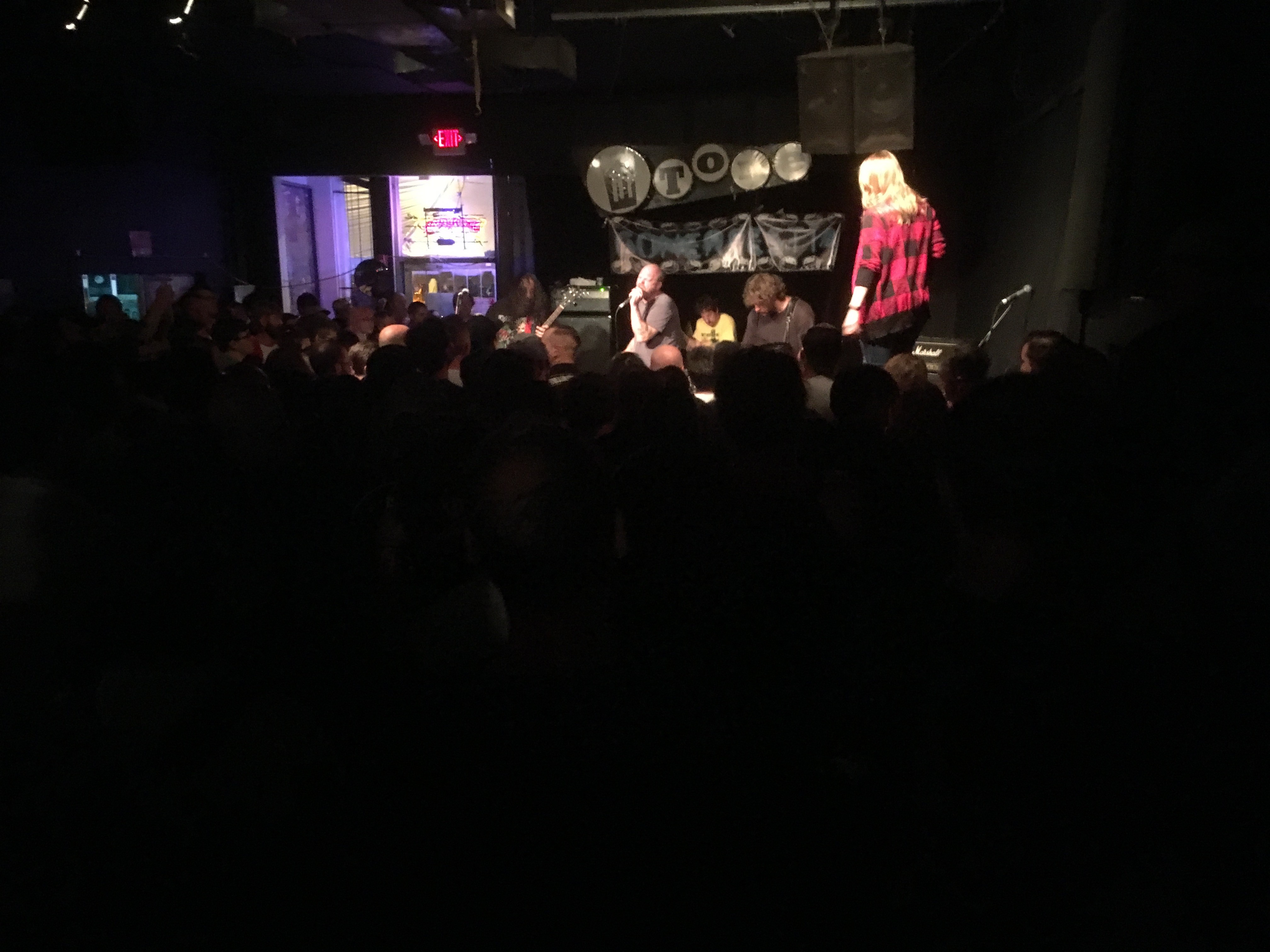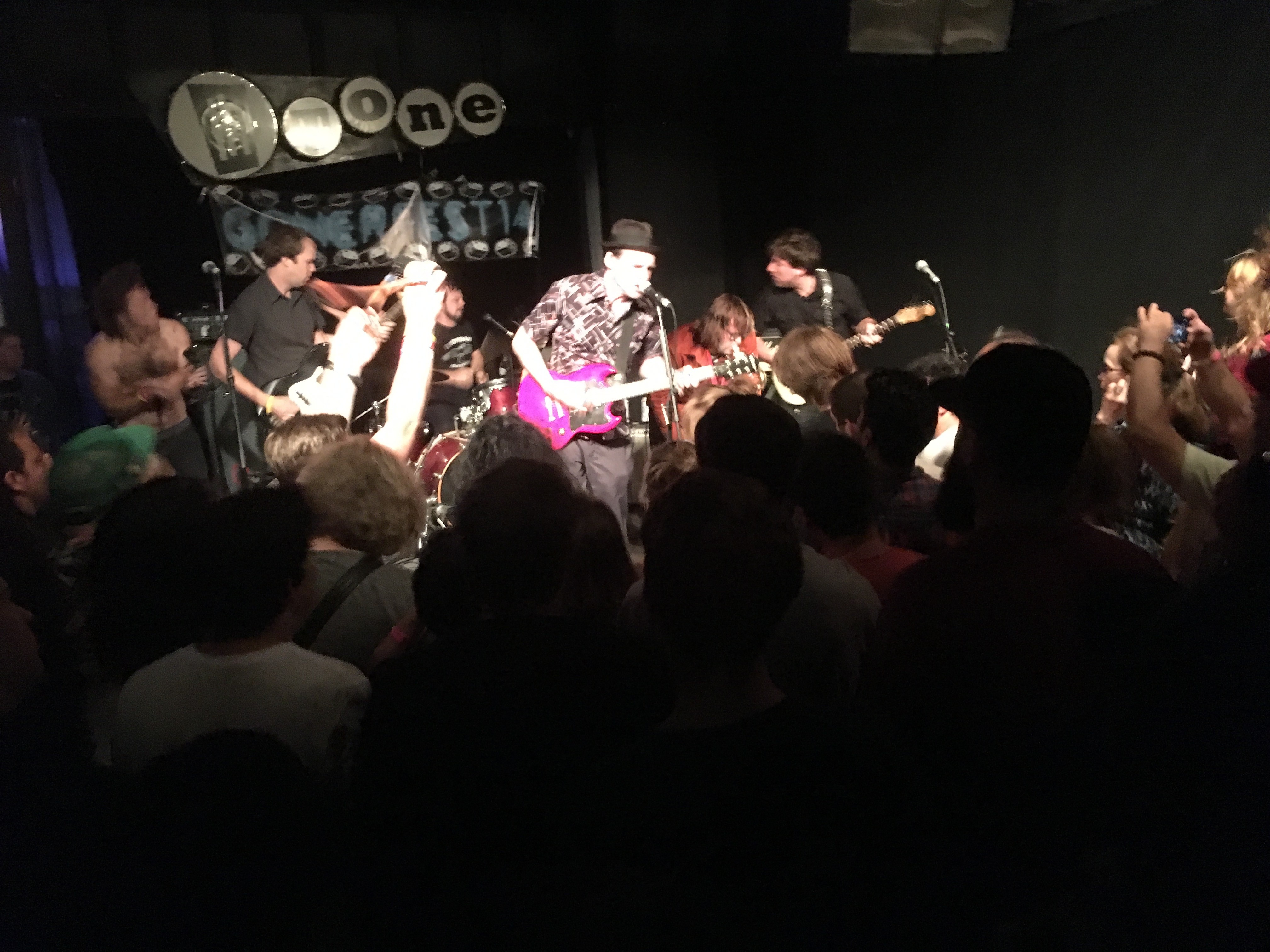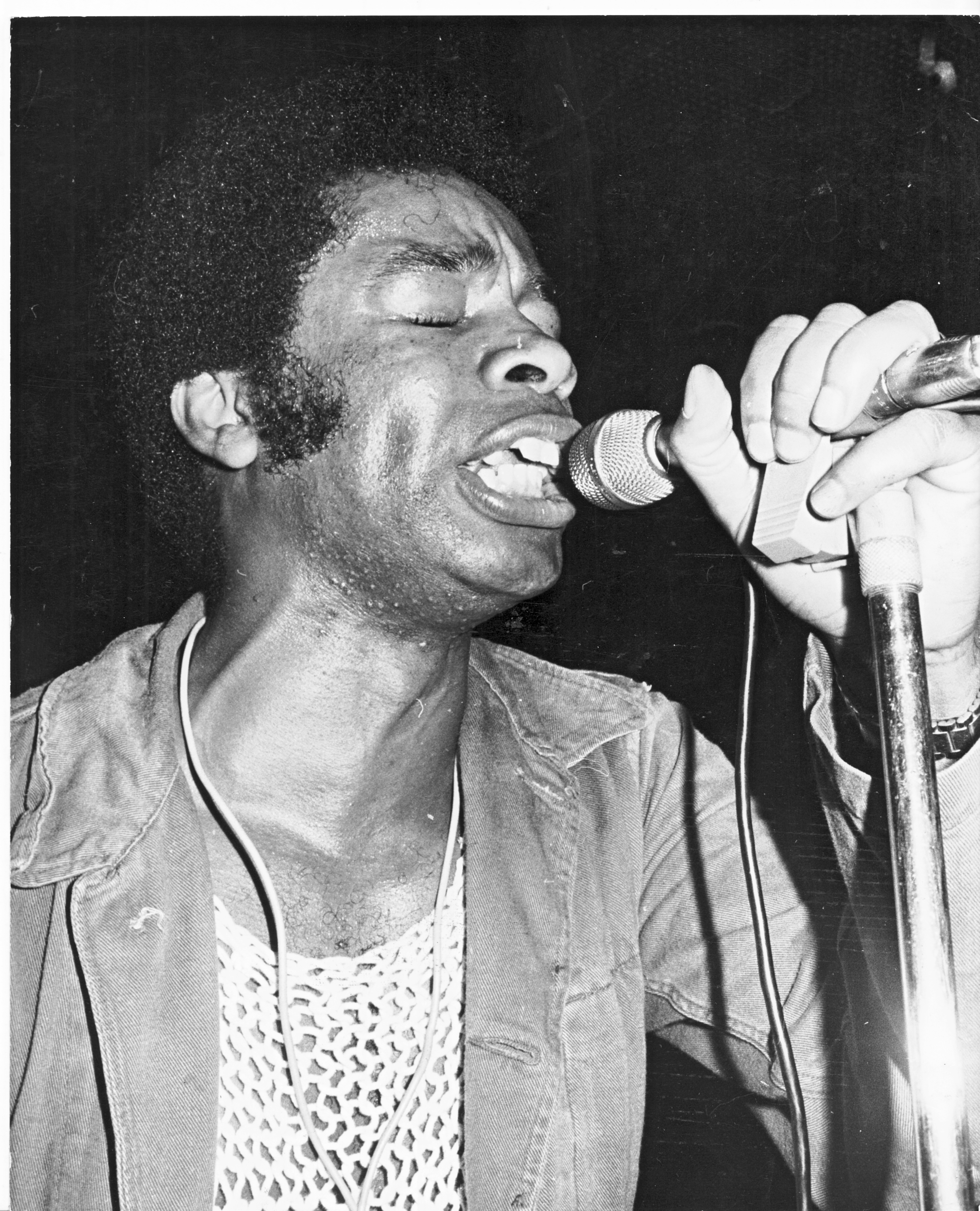While Gonerfest is known for bringing cutting-edge bands to Memphis, one can’t forget the keen sense of history that also informs their bookings. This week’s Gonerfest 21 is a good reminder of that, with the opening night’s headliner being Oakland’s So What fronted by Derv Gordon, the original lead singer of The Equals, a band founded in 1965. They could have hit it big in America like so many during the British Invasion, had they ever bothered to invade. But, being one of the first multiracial beat combos ever, they had mixed feelings about that.
“We didn’t want to tour the U.S. because we wouldn’t have been able to cope with this ‘no Blacks’ business and not being able to stay in certain hotels or whatever,” Gordon recalls today, speaking from his home in England. “Still, ‘Baby, Come Back’ made the Top 40.” But with no U.S. touring, they never made it big here.
Though The Equals’ blend of freakbeat, soul, ska, and bubblegum rock was plenty cutting-edge (and plenty infectious) at the time, having a group with both Black and white players pushed the envelope even further. Booker T. and the MG’s may have been the only such small combo to precede them. But The Equals were more of a rock band, paving the way for later groups like The Foundations, The Jimi Hendrix Experience, and Love. And while they did find greater success in Europe and Asia, race still factored into everyday London life. Harassment by the cops was a regular feature of life for Black Londoners, and that in turn led to the creation of one of The Equals’ most enduring songs, “Police on My Back.”
“I left the guys at rehearsal and went to a main railway station to get some cans of drinks,” Gordon recalls, “and as I walked into the station, two huge men, one on each side, picked me up, lifted me off the floor, and said, ‘You’re nicked.’ I said, ‘I’m what? Why am I nicked?’ They just said, ‘You’ll find out,’ and they took me across the street to the police station. I was there for what seemed like forever. I gave them all my information, then said, ‘Excuse me, can you tell me why this is happening to me?’ A policeman says, ‘You resemble someone who murdered his girlfriend.’”
Gordon cleared things up only after requesting that his band be brought in to vouch for him. As they entered, “I could see them coming in with big grins on their face,” Gordon recalls. “Bastards!” Humor aside, the incident was a wake-up call for them. Soon Eddy Grant, The Equals’ lead guitarist and main songwriter (who later gained worldwide fame with his solo hit, “Electric Avenue”), would pen arguably the best song about being on the lam, later made famous via a cover version by The Clash, with its heartfelt cry, “What have I done?” And Gordon’s voice brought the phrase to life.
The band had other politically charged songs, including 1970’s anti-war “Black Skin Blue-Eyed Boys,” but their primary focus was on fun and groove, with charging rock riffs paired with infectious beats and Gordon’s fiery, soulful vocals, often portraying whimsical characters: “Soul Brother Clifford,” “Michael and His Slipper Tree,” “Viva Bobby Joe.” And while their sound got heavier and funkier by the late ’60s and ’70s, The Equals always kept things short and sweet. “I don’t think Eddy enjoyed doing long guitar solos,” quips Gordon now.
That makes The Equals’ music perfectly suited to the D.I.Y., short-and-sharp vibe of so many Gonerfest bands. And that’s an aesthetic shared by retro-stomp rockers So What, with whom Gordon first played in 2017, including an incendiary performance at Gonerfest 14 that year. Gordon feels they’re the perfect group to play Equals songs: true to that original stripped-down spirit, but with their own self-described “junkshop glam/bubblegum/proto-punk insanity.” Gordon notes that So What’s bassist, Sean M. Lennon (not the son of a Beatle), “is the only bass player I’ve ever heard actually do all the bass runs in ‘Police on My Back.’ And Jason [Duncan, singer and guitarist] actually knows more about Equals songs than I do!”
Gonerfest 21 runs from Thursday, Sept. 26th, through Sunday, Sept. 29th, at Railgarten, featuring dozens of bands. Visit goner-records.com for more information. So What takes the stage at 9:30 p.m. on Thursday, and Derv Gordon joins them at 10 p.m.
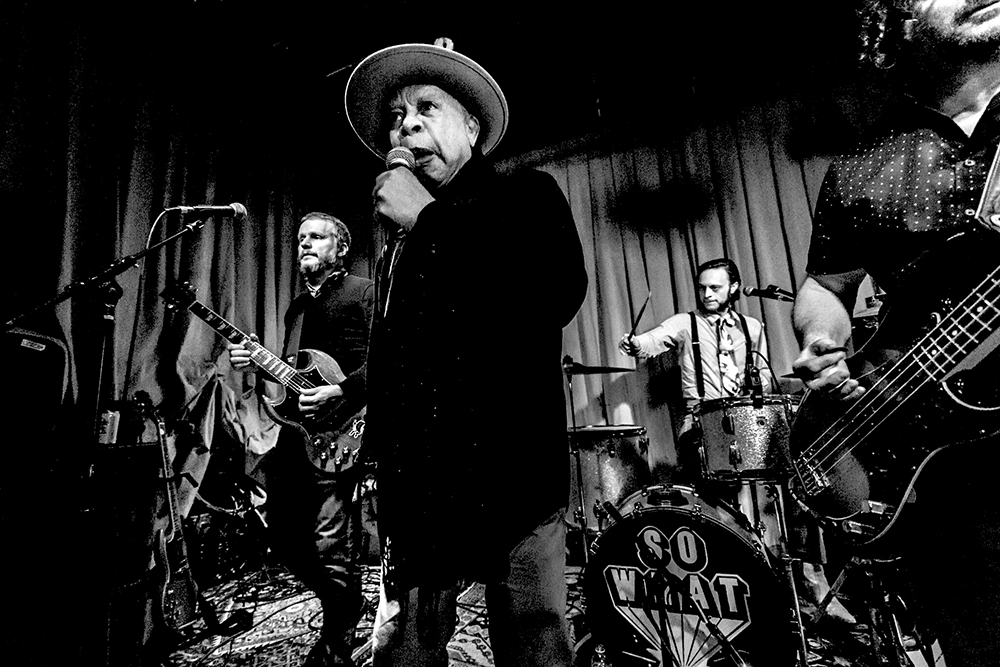
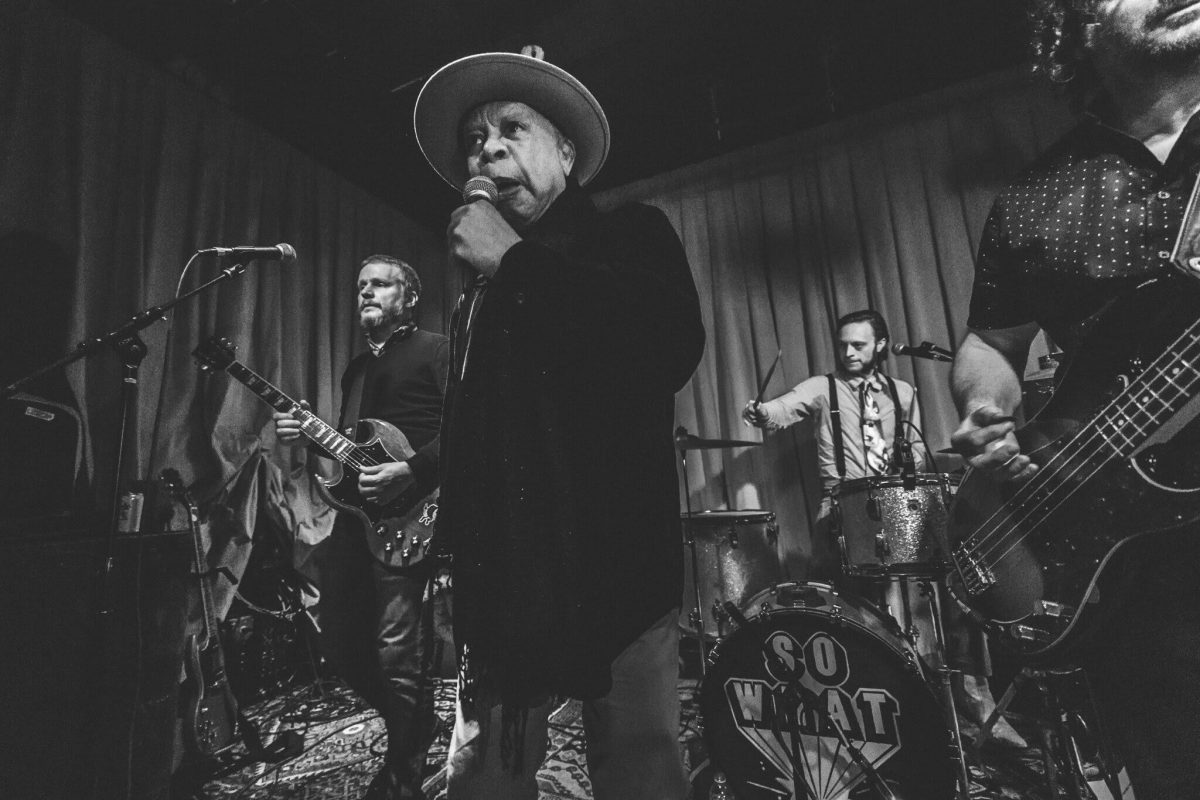
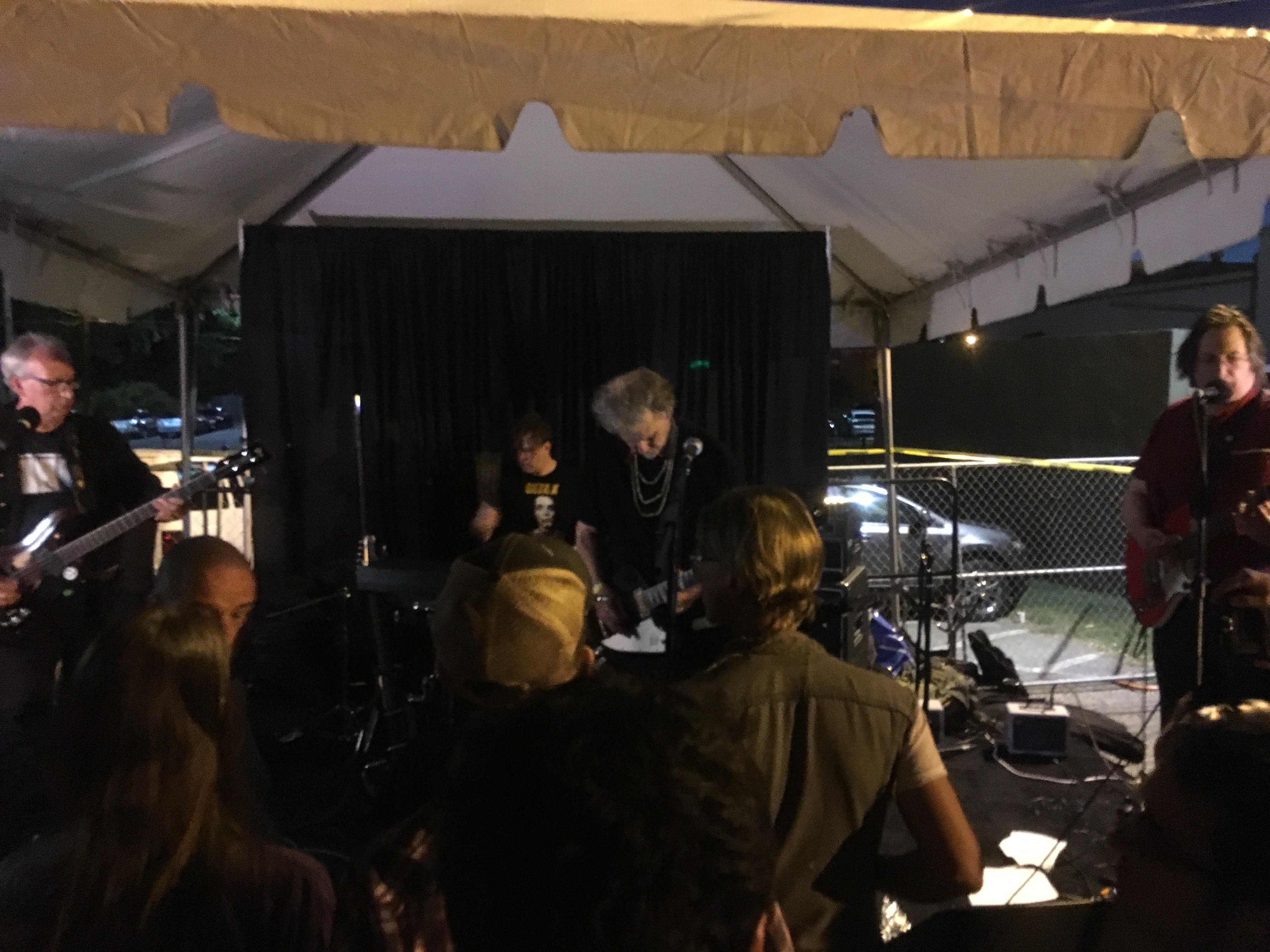 Alex Greene
Alex Greene 